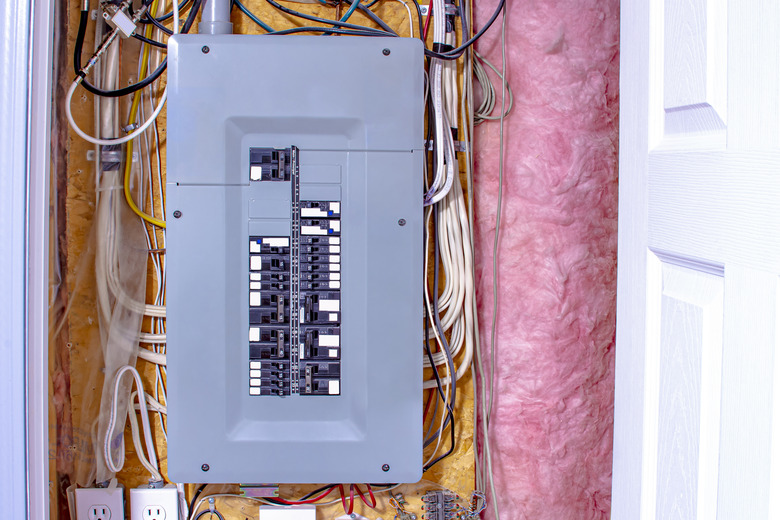How To Stop Mice From Eating Through Electrical Wiring
We may receive a commission on purchases made from links.
Having mice in your house making a mess is one thing, but having your home's wires chewed by rodents can be an expensive repair, and you can experience a house fire. The last thing anyone wants is to lose their home or have to pay big bucks to an electrician because of a mouse invasion. Your best course of action to prevent mice from chewing wires is to prevent them from entering your home in the first place. However, there are products you can use to protect your wiring if these pesky rodents do invade your happy abode.
Identifying a Mouse Problem
Identifying a Mouse Problem
The word rodent means "to gnaw," and rodents are the largest mammal group, with more than 2,000 species, including mice. The main difference between rodents and other mammals is their teeth. All rodents have two sets of incisors — an upper and lower pair that don't have roots and grow continuously. Mice have to continue gnawing or grinding their teeth together to keep their teeth sharpened and shortened, or they'd grow into the rodents' brains. Their teeth are harder than iron or copper, and if your electrical wiring happens to be in their way, they'll just chew through it.
The house mouse is one of the most common pests in the United States, and often, there are signs you have a rodent problem before the lights flicker. Mice are nocturnal, so you might hear chewing inside a wall or see something scurrying across the floor at night, as they only need a dime-size opening to enter an area. You might notice chew marks on food packages, smell rodent urine, or find black pellet-like droppings, which is a sign that mice are in the vicinity. If mice do chew through the wiring, you might notice lights flickering or an area that is no longer receiving electricity. If you suspect a problem with mice, it's best to inspect your home's wiring to prevent a possible fire.
Preventing Mice From Chewing Wires
Preventing Mice From Chewing Wires
Preventing mice from chewing wires involves limiting the rodents' access to them in the first place. You can cover wires with a specially formulated antirodent electrical tape that is capsaicin infused and repels mice with its spicy taste. Additionally, you can seal the wiring in a thin coating of concrete, as the mice won't gnaw through the substance. Another solution is to seal the wiring in steel or plastic tubing or run the wiring through steel trunking.
If mice are chewing through your car's wiring, you can wrap it in antirodent electrical tape or install wire mesh under the hood covering your engine to prevent mice from getting in. When it comes to the best rodent repellent for cars, peppermint works well placed inside the engine area and can also be used in the home. Keep the inside of your vehicle free of food and start your car regularly to make it a little less inviting for mice to take up residence.
Keeping Your Home Mouse-Free
Keeping Your Home Mouse-Free
Mice have a life span of less than a year and can produce 10 litters yearly, having around 50 babies. With sexual maturity occurring from 5 to 9 weeks of age, it's easy to see how one mouse can quickly turn into an invasion of mice. Your best defense is to prevent the problem before it occurs. Since mice only need a very small opening to get inside, it's best to regularly check your home's perimeter for any openings leading into the house and seal them. Check areas like your soffits, where plumbing enters the home, as well as exhaust vents and crawl space vents.
Keeping areas inside your home clean and free of food scraps goes a long way toward getting rid of mice since you remove their food source. Mice have a varied diet and will feast on just about anything, from grains to scraps of meat to nuts and dog food. Be sure to store all food products in tightly sealed plastic containers and clean your table, counters, and sinks after eating. Call an electrician if you notice damaged wires and an exterminator if mice have taken up residence inside your home.
